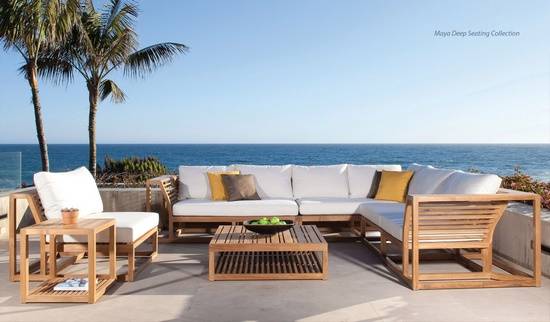
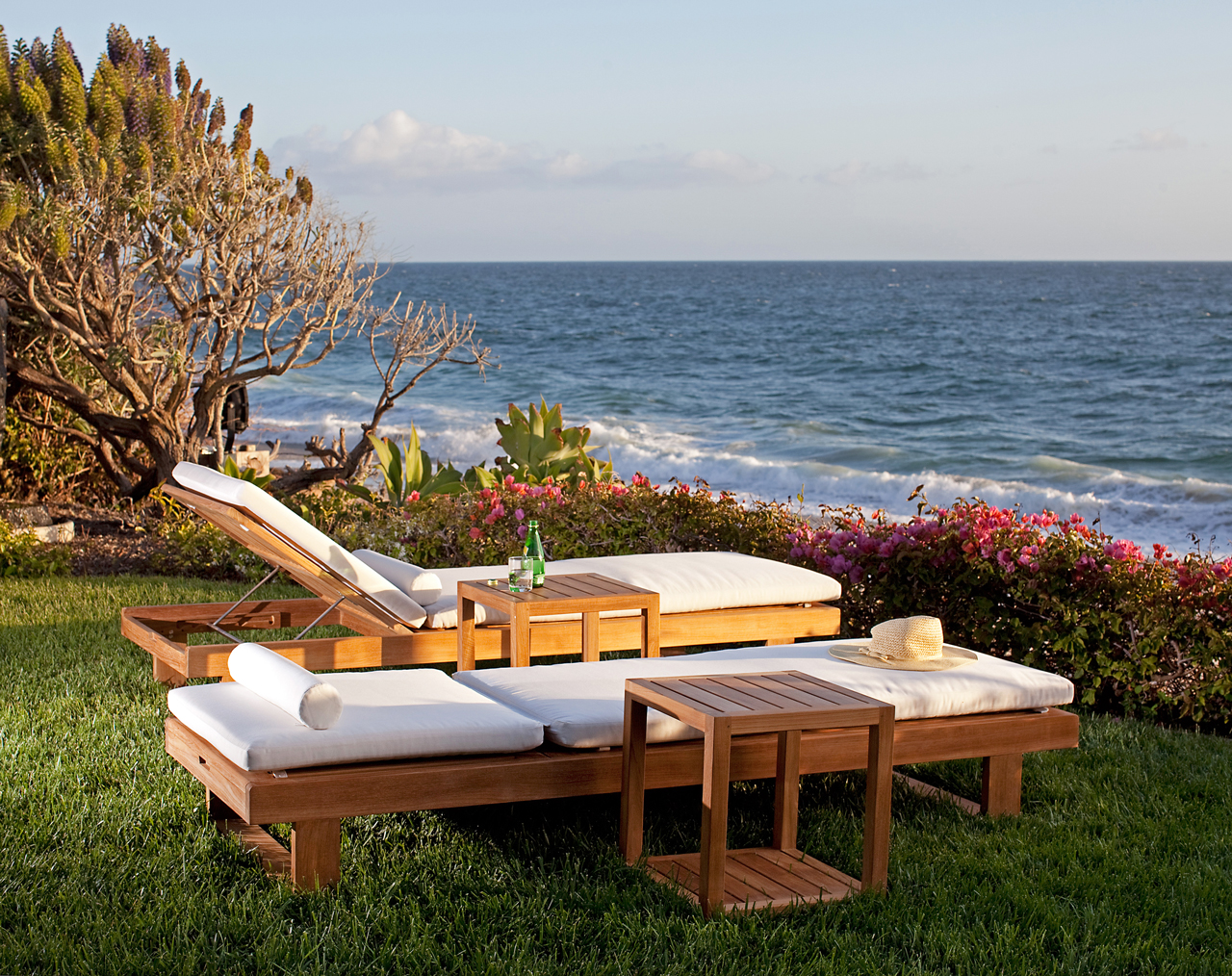
Each day as people all over the globe go about their lives, a great common goal unites us. That is, to preserve our planet. To keep enjoying natureâs splendor and protect pivotal ecosystems, there are many steps that need to be taken.
Climate.gov states, âThe amount of future warming Earth will experience depends on how much carbon dioxide and other greenhouse gases we emit in coming decades. Today, our activitiesâburning fossil fuels and clearing forestsâadd about 11 billion metric tons of carbon (equivalent to a little over 40 billion metric tons of carbon dioxide) to the atmosphere each year. Because that is more carbon than natural processes can remove, atmospheric carbon dioxide increases each year.â
Individuals certainly make a difference with their choices, such as who they buy from, but big businesses and industries are the ones that make the largest impact. Much like fashion, the furniture industry needs to be cognizant of its ecological footprint in terms of design, materials, and manufacturing. Luxury outdoor furniture brand Westminster Teak takes this seriously and so do its leaders. The companyâs vice president, Mal Haddad, is passionate about the topic and has much to share about sustainability and teak, in particular.
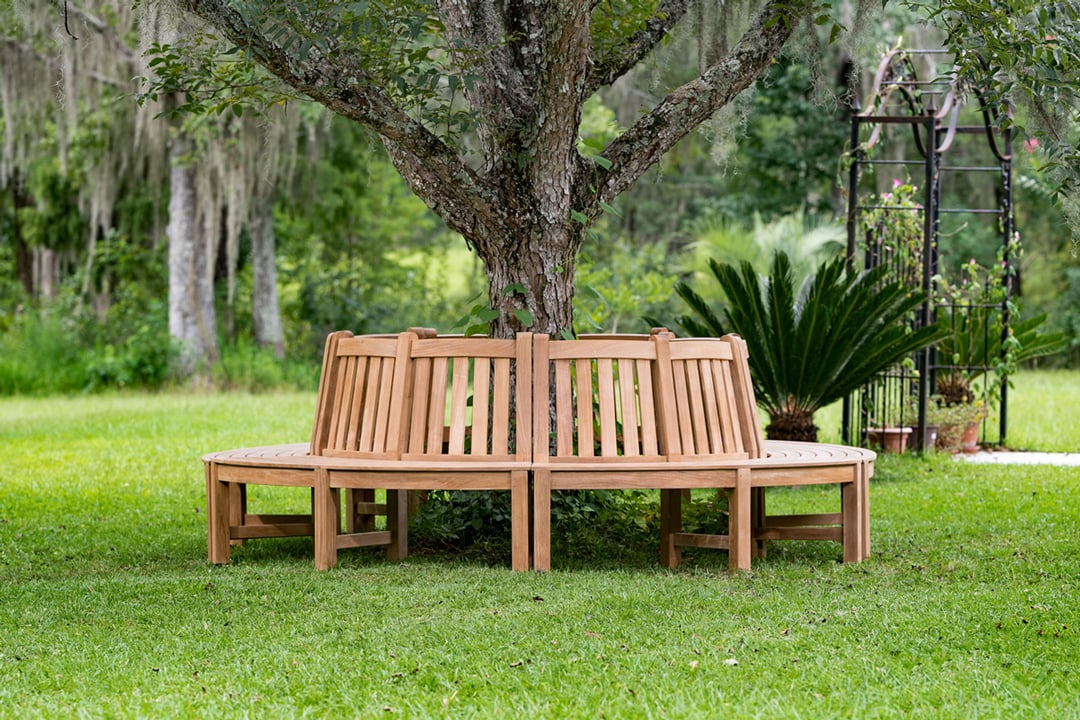
Traditionally, how sustainable has the furniture industry been?
The concept of sustainability in industry, let alone the furniture industry, was really unheard of until the late 60s and 70s. Thatâs when the idea began to permeate into public consciousness due to growing environmental awareness and activism, and concerns about pollution, resource depletion, and other environmental issues at the time. It didnât go mainstream until the late 1990s with the adoption of the Kyoto Protocol in 1997, and the launch of the United Nationsâ Sustainable Development Goals in 2015, bringing sustainability to the forefront as a global issue.
Historically, the furniture industry has not always been sustainable and has, to a large extent, relied on the extraction of natural resources and the use of energy-intensive manufacturing processes. This has led to the rapid depletion of natural forests, an increase in greenhouse gas emissions from the use of toxic chemicals in the manufacturing process, and water pollution in rivers and the air.
It is not until recently that there has been a growing recognition of the need for sustainability in the furniture industry. True sustainability includes every part of the value chain involved in the production of a piece of furniture: design, supply of raw materials, manufacturing, packaging, transportation, warehousing, and installation. Every step of the process, from forest to showroom floor, should include environmentally responsible methods before it could be classified as, or considered, âgreenâ or âeco-friendly.â The use of sustainable materials is only part of the solution.

Worldwide, many people are trying to minimize their ecological footprint and reduce waste. Why is teak furniture, whether inside and out, a great choice for designers and homeowners in terms of sustainability?
Teak is the quintessential gold standard of wood, long prized for its weather resistance durability, beautiful appearance, and its relative ease to work with. Whether we use it in furniture to enjoy the outdoors year-round, or indoors for its extraordinarily beautiful warm tones, organic feel, and longevity, teak has been the âgo-toâ hardwood that is durable and long-lasting. Its high oil and silica content makes it naturally resistant to decay, rot, and termites. It is relatively easy to work with and as works well for furniture making as it can withstand the rigors of the outdoors, in sun, sleet, rain, or snow. Teak wood requires minimal maintenance in outdoor furniture or decking and ages gracefully into a handsome gray patina. Indoors, teak furniture almost requires almost no maintenance and can be passed on from one generation to another.
Because of its durability and ease of care, teak furniture lasts a long time and does not require replacements, making it by default a more sustainable choice. This is especially true when timeless design is considered in the furniture-making process, which always Westminster Teak prioritizes.
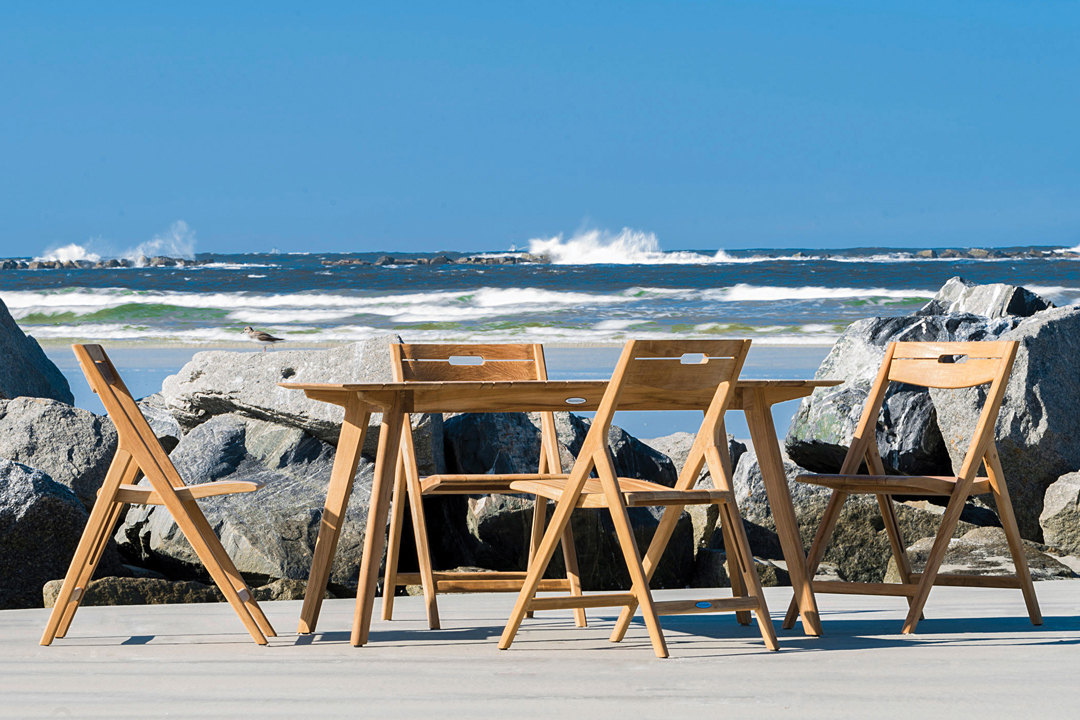
How is teak grown and harvested? Where is it mostly grown, and specifically, where does Westminster Teak source it from to make its timeless furnishings?
All the teak furniture manufactured by Westminster Teak comes from sustainably harvested plantations in Java, Indonesia. These plantations are strictly managed by the Ministry of Forestry and Perum Perhutani. Logs are responsibly harvested and certified, ensuring their Chain of Custody from the forest to the retail floor. Our factory produces furniture that is from both SVLK and FSC Certified wood.
Teak does not grow naturally in the rainforest in any sufficient numbers to âharvestâ or warrant commercial logging in the way Pine does. Today, the largest teak plantations are found in Indonesia, Thailand, and Burma where the weather conditions of ample rain coupled with 3-5 months of hot or dry weather make it conducive for the trees to flourish. Teak trees are planted in rows and grow best in alluvial soil that is deep, flat, and well-drained. Most teak plantations, incorporate a system of agro-forestry for the locals to farm other crops between the alleys or rows of planted teak trees throughout the life cycle of the trees. This provides the locals with additional economic avenues along with the industry brought about by the teak enterprise to the local economy.
Historically, the Dutch started teak plantations in Indonesia perhaps some 200 years ago and the government of Indonesia has since taken over and developed it into what it is todayâthe worldâs largest teak plantations managing over 5 million acres of sustainable forests. Through careful and responsible forest management, trees are constantly being planted at a rate that far exceeds those being felled.
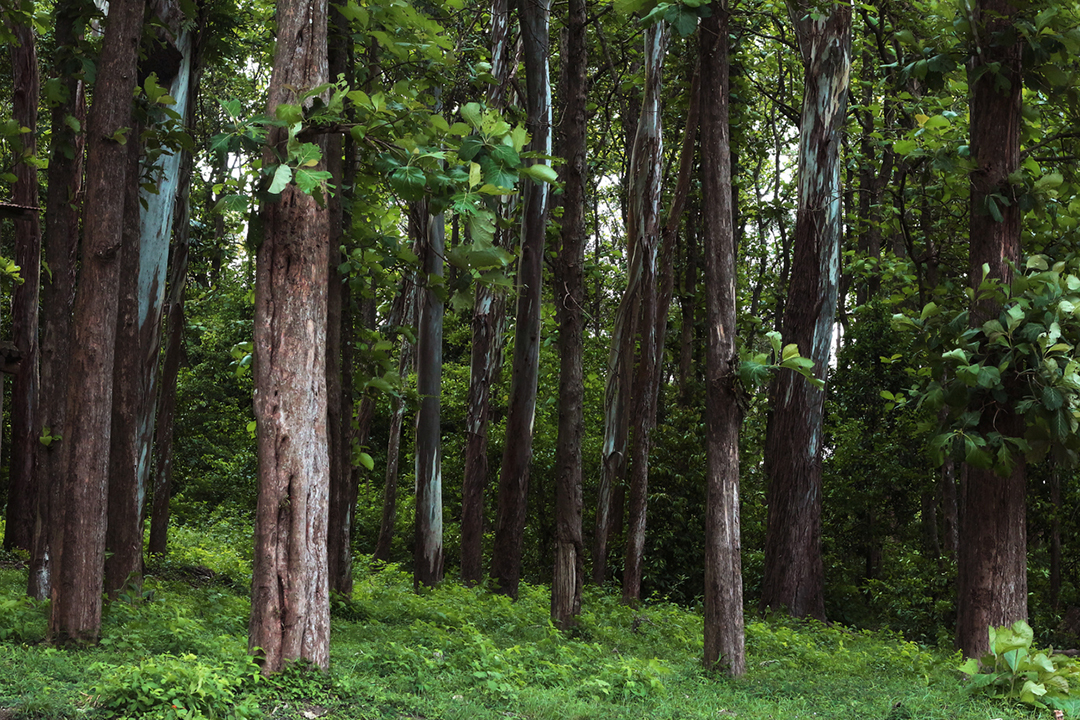

How do teak plantations compare or contrast to palm oil plantations?
Though both teak and palm oil are grown for commercial purposes, there are some overriding differences between them.
Unlike palm oil plantations which have been known to destroy entire swaths of pristine forests displacing hundreds of plants and animal species, teak plantations have been shown to preserve, if not promote, biodiversity by encouraging agroforestry within the rows of trees. This, in turn, reduces the ecological impact on the environment.
Because teak is highly resistant to pests and diseases, there is far less use of pesticides in teak plantations than in palm oil plantations. For this reason alone, teak plantations have in many ways preserved many of the forestâs indigenous plants and animal species.
By its nature, teak plantations require less water than palm oil, another reason it is less damaging to the environment in comparison. Teakâs deep taproots actually contribute to the general health of the soil and soil structure to the benefit of other plant species. Palm oil on the other hand requires heavy use of chemicals and fertilizers which often degrades the quality and overall health of the soil over time.
Tell us about some of the other popular materials for outdoor furniture. What makes them potential sustainable options or what makes them less eco-friendly options?
Advancements made in plastics over the past decade have brought about some very interesting use in their application as synthetic wicker, rope, and sling in the furniture industry, especially for outdoor furniture. These combined with aluminum, stainless steel, and, of course, teak, brought about designs in furniture that we have not seen in the past.
The ability to bring in endless colors, shapes, textures and innumerable combinations with other materials has given rise to a plethora of possibilities for the consumer. These âlatest and greatestâ furniture designs have their place and purpose, but depending on design, quality, and performance, they can sometimes fall into the trendy category. This is especially true when what the mass market offers are often price and trend-driven, creating a deluge of quick-and-ready products, jettisoning the idea of craft and craftsmanship, of quality and tradition.
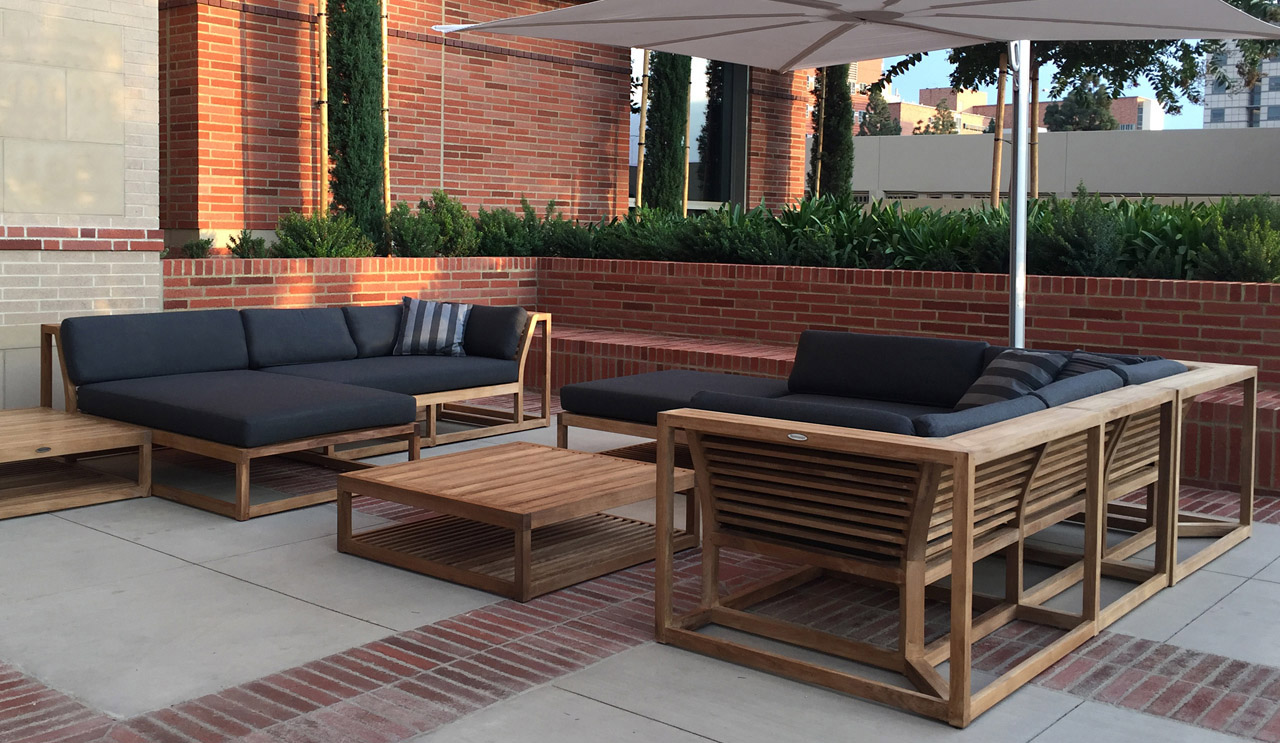
How are metal or plastic outdoor furnishings often produced versus the pieces made by Westminster Teak?
What makes Westminster Teak unique is how we view the manufacturing process as only part of what we do. As a raw material, teak lasts far longer than the average resin-based plastic, synthetic wicker, or metal furniture which are all environmentally less eco-friendly than teak.
Because of its inherent durability, we work passionately to produce only designs that are as timeless and long-lasting as the material (teak) itself. Good design is the DNA of our furniture with the knowledge that it will be used and passed on over generations. We hardly retire our designs and add only after considerable work has been done in designing a product that is relevant to our line of offerings. Some of our items have been around since we started the company 25 years ago and remain as popular now as they did then.
To be sure, there is nothing wrong with metal or plastic outdoor furnishing, especially when well-made and well-designed. When made with beauty, craftsmanship, and sustainability in mind, the outcome should be an extraordinary product, an object of beauty that would fit well within the userâs existing surroundings.
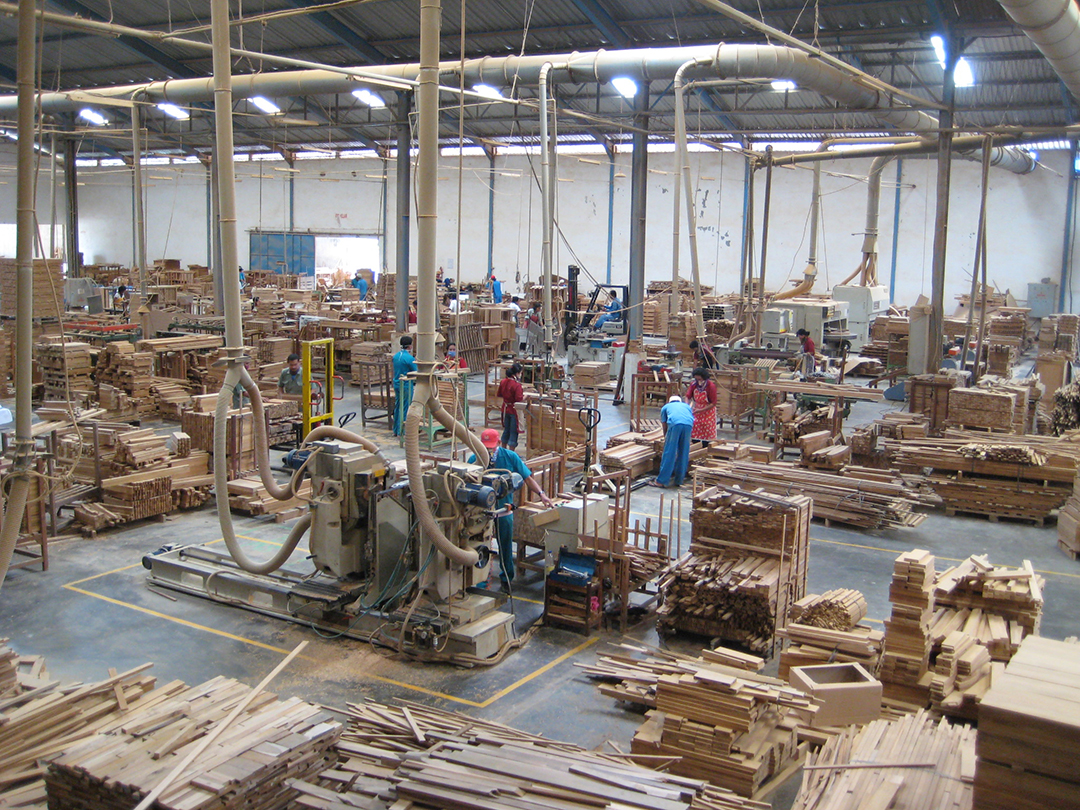
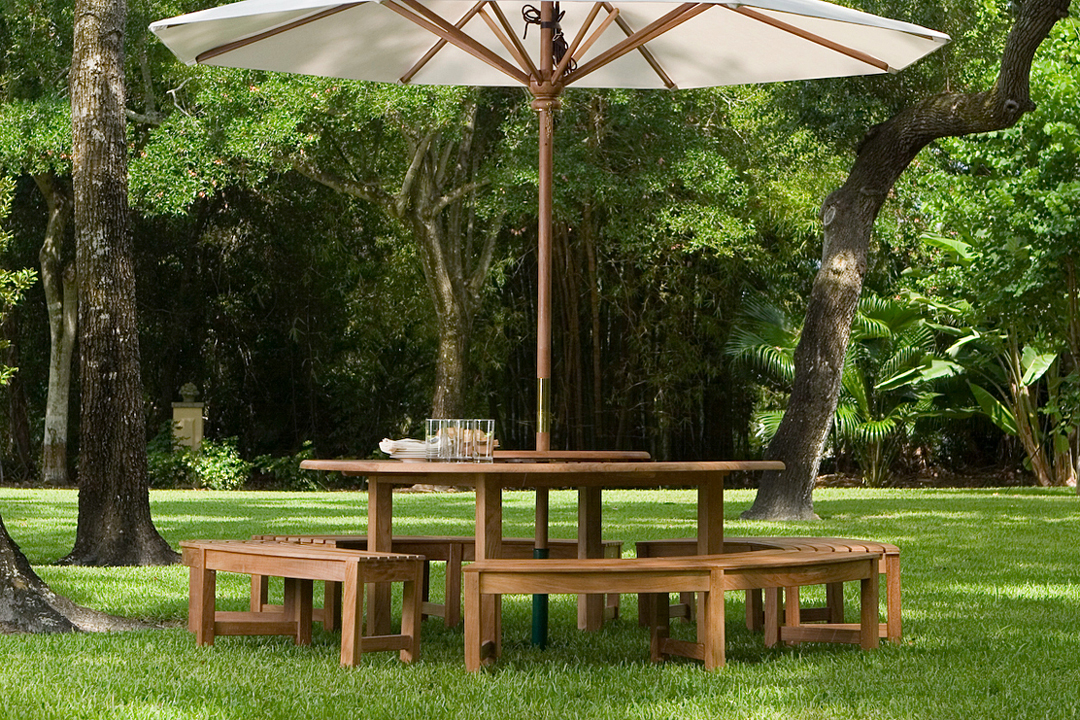
Going back a few centuries, what are some of the roles teak played in history and how did it come into wide use? What is it mostly used for today?
Teak has been around throughout the ages and has been the ecological tree of all times. Its hardwood has been a latent part of our history and continues to be so; in arts and architecture, in furniture making and flooring, shipbuilding and the maritime industry, trans-ocean commerce, trade, politics, war, and empire building.
Over the centuries, archaeological work in India and neighboring states as far as Oman has shown that teakwood was used in seaworthy boats and ships as early as the 5th century. Known for its booming Frankincense trade, the Omanis plied the trading routes through the sea to deliver frankincense to Egypt, India, Rome, and China, using their own ships. Teak, being most valued for its strength and durability was first possibly used in shipbuilding in India and exported to other Persian Gulf countries that, by the 8th and 9th centuries, were sailing across the world for trade and commerce.
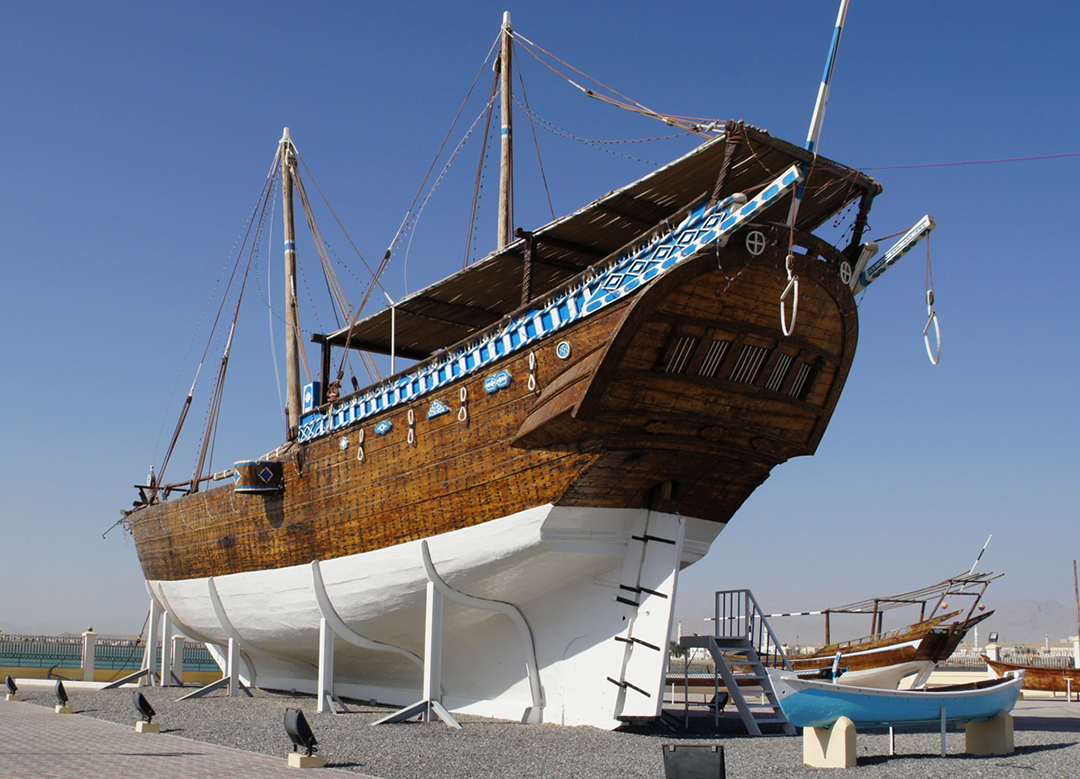
In later periods, Europeansâmainly the British and Dutch who learned about the seaworthiness and value of teakâbegan the replacement of their traditionally used oak and pine in their shipbuilding. Teak became so prized by the colonial rulers that restrictions we imposed on the colonized natives from using teak for their own use. To some extent, the material aided Britainâs rise to power and expansion of its colonies with its establishment of a shipyard in India.
Teak also played a major part in politics in the chronicles of Burmaâs last kingdom when it was used as leverage in the negotiations between King Mindon with the purchase of 3,600 Enfield rifles from the British government.
Today, teak is not only the consummate hardwood industry standard used in luxury superyachts, world-class architecture, and beautiful furniture, it is now making its way into the car industry as well. Luxury car company Rolls-Royce designed a Phantom model that features teakwood âdeckingâ and accents.
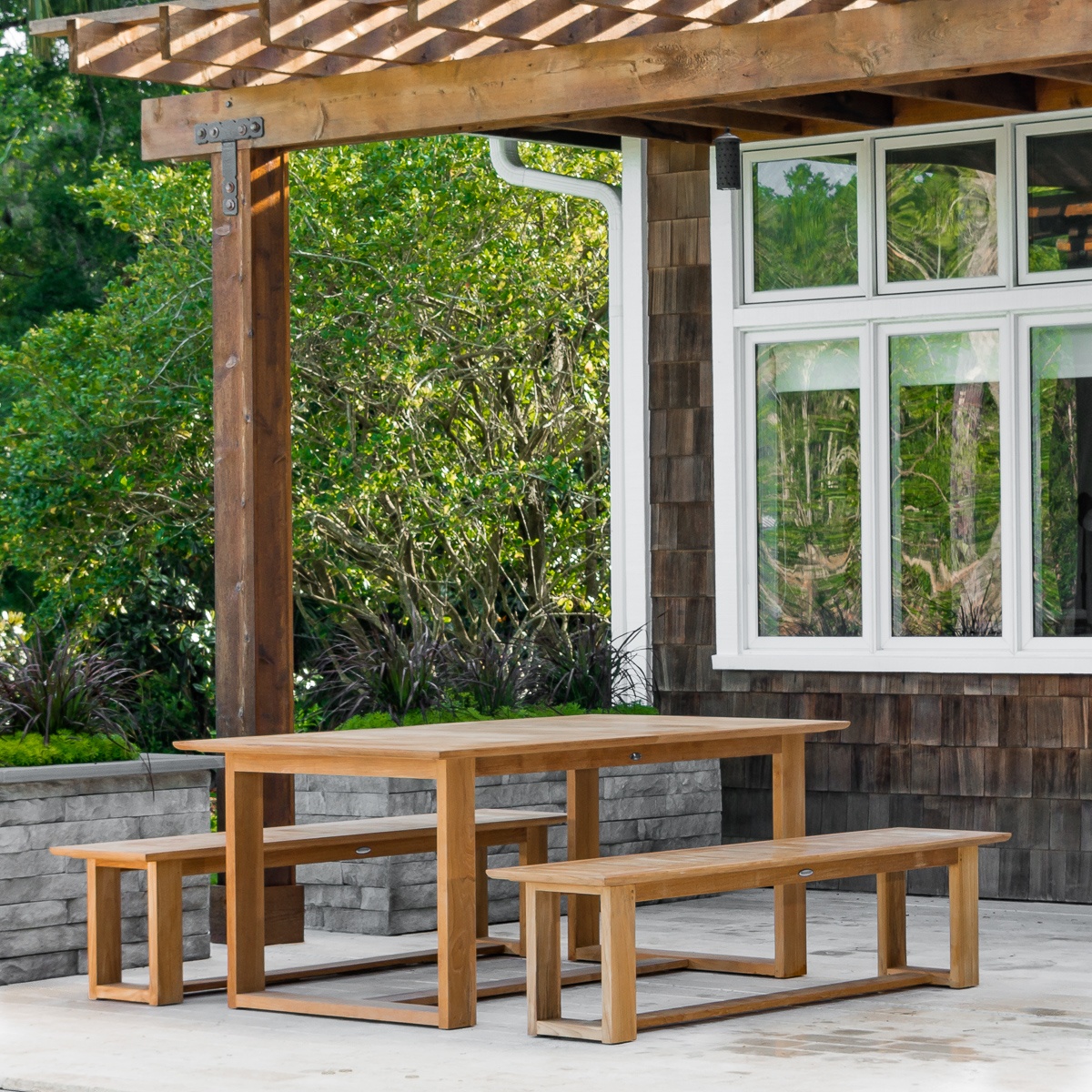
With such a rich and complex history, what is the future of teak in your opinion?
From our perspective, 3 characteristics of quality teak make it invaluable as a material and ensure it will keep flourishing in the furniture industry in the future.
1. Sustainability for the environment. As a raw material, teak lasts far longer than the average resin-based wicker or metal furniture which is environmentally less eco-friendly than teak.
2. Longevity in Performance. Though it is among the most expensive materials for outdoor furniture, teakâs strong appeal is in its beauty and longevity.
3. Timelessness in design. Good design comes from being passionate with every detail of the craft, from concept to consumer. Since teak is a material that lasts a very long time, the furniture design should be timeless and project a sense of permanence. It should resonate with the idea of form and function, and how we live with the furniture, cherished over generations. Westminster Teak creates pieces that are as relevant now as they were 50 years ago and will be 50 years from now.
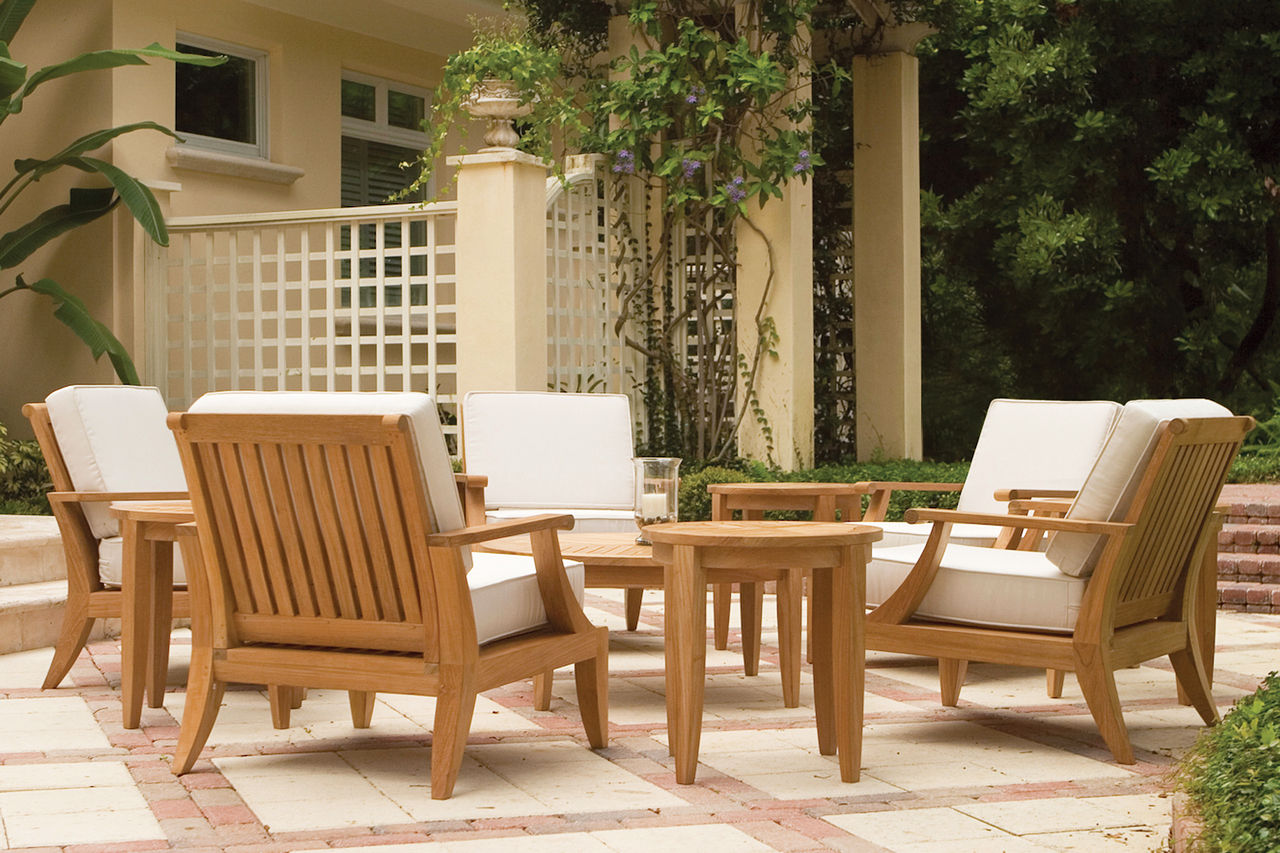
What are you most proud of about Westminster Teakâs sustainability and world impact?
The terms sustainability, green, or eco-friendly, have been used so elastically in the industry that they may have been misused, misrepresented, or even monetized. As a company that supports the global green movement, we believe it is not only critical as a manufacturer to be environmentally responsible by using teak from sustainably harvested plantations, but also to be socially responsible toward both the indigenous people working in the plantations as well as the skilled artisans and employees working in our factories.
Having personally worked with our manufacturing partner in Indonesia, over the past 16 years, I feel privileged to know that we are committed to our social responsibility toward the people who made it all possible. The extraordinary artisans, the tree farmers who relentlessly toil in the plantations, the mill workers, woodworkers, and seamstresses are all far more valuable than the materials and furniture theyâve worked to produce. Educating the discerning consumer and raising awareness about sustainability must be coupled with the integral role of social responsibility toward the local communities. Sustainability is not only about a âgreenerâ planet or being âeco-friendly,â but for it to be truly sustainable, it also needs to raise the level of humanity in the communities that the industry has come into.
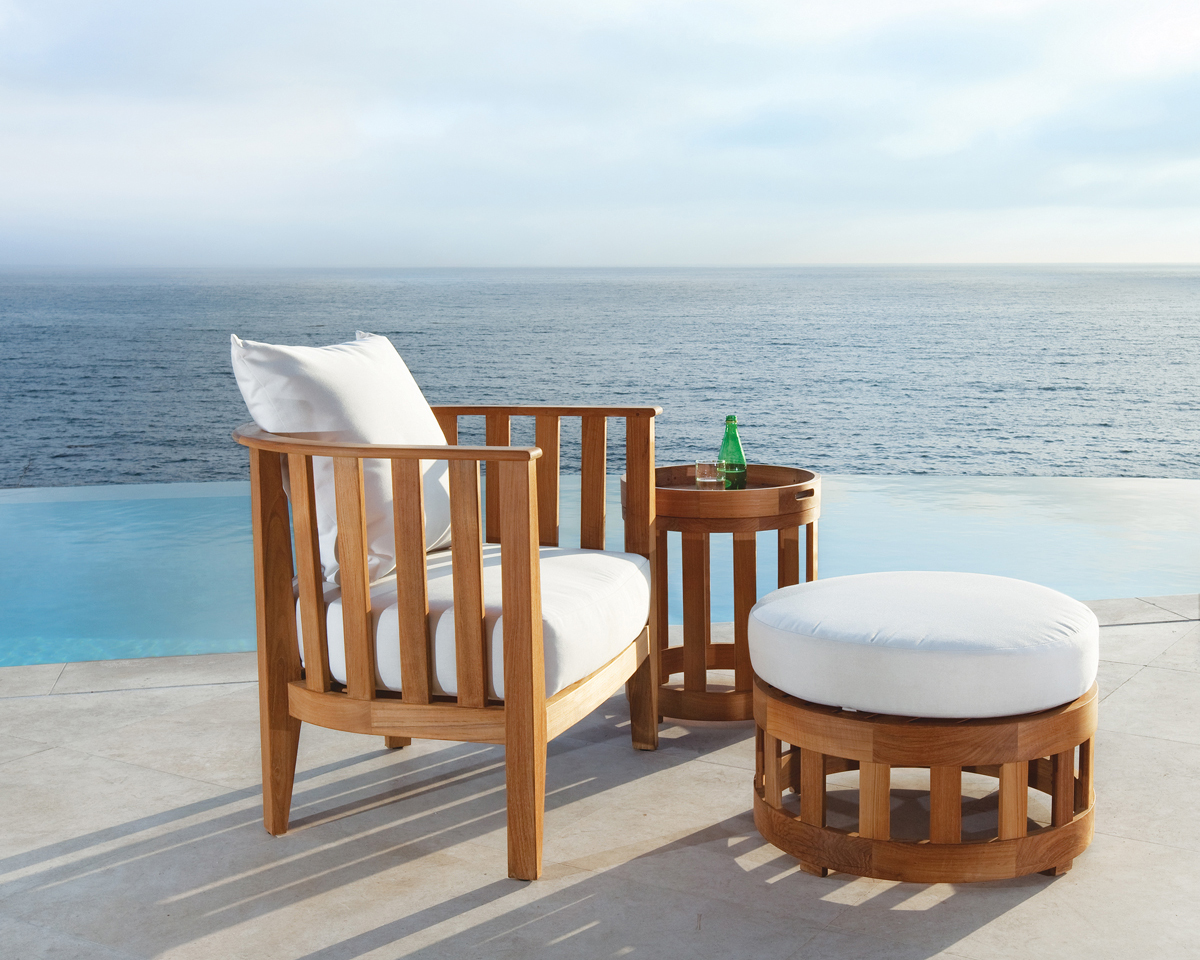
Luxury furniture you can feel good about buying is always a good idea. When you buy high-quality and timeless teak furnishings, youâre making a sustainable choice and also investing in something for your home that can one day belong to children or grandchildren.
To learn more about the family-owned brand Westminster Teak and outfit your outdoor spaces for years to come, visit westminsterteak.com.




